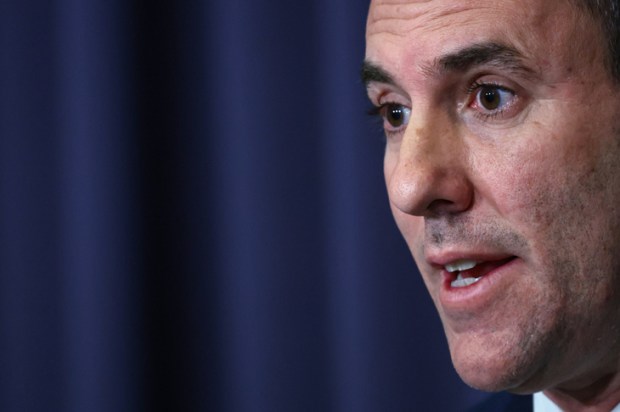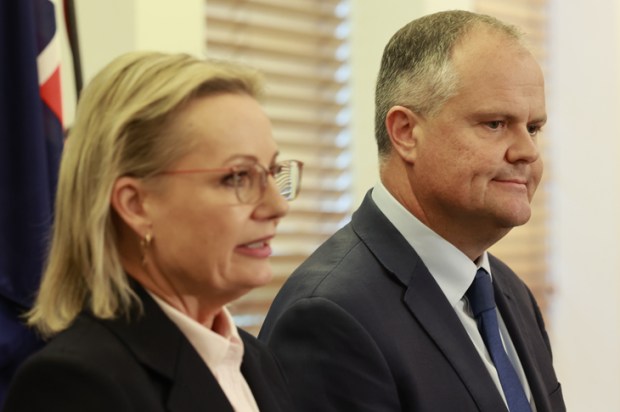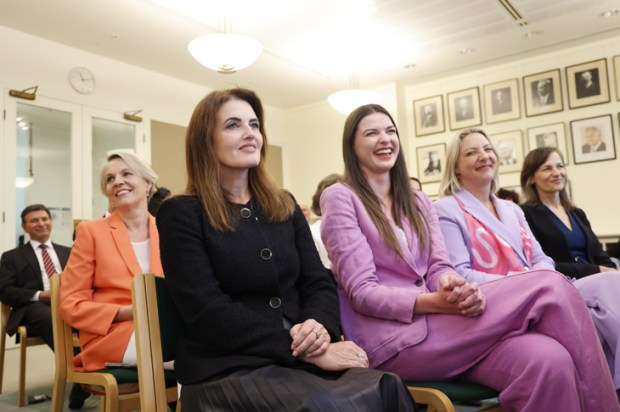There is an air of inevitability about the predicament facing the former sports minister Bridget McKenzie over the sports grants affair. All the usual portents for dismissal are lining up as if they know their place and what is expected of them: a few half-hearted expressions of support, a lot of leaks to the media, the silent hopes of her colleagues that she will be sacked, so they can move up a notch on the slippery pole, the now ritualistic referral of the issue to a public servant because parliamentarians are too spineless to decide these things for themselves and, finally, a weakened prime minister who is desperate to be liked and to restore his former popularity. Accordingly, I have no doubt that by the time this issue of the magazine lands on the verandahs of our readers, Bridget McKenzie will be gone. I hope it will not go that way. But I fear that it will. What I have no doubt about is that the story should definitely not end that way. Let me tell you why.
First, Senator McKenzie was the minister responsible for a scheme to make grants to sports clubs of money that had been approved by the parliament. She is now being pilloried for intervening and approving grants to some recipients instead of rubber-stamping the recommendations of the bureaucracy. This is grossly unfair to the minister. The act of parliament setting up this scheme says that a separate statutory body, Sport Australia, looks after the payment of the money and the running of the scheme. But all grants made under the scheme were, and are, subject to approval by the minister. This can only mean that the minister may accept some recommendations (which she did), reject some (which she did) and make some of her own (which she also did). Not only is that so, but it is the only way the commonwealth government can act, i.e. under the responsibility of a minister. Moreover, everyone involved agreed with this process. Thus, the Auditor-General’s report concluded: ‘the program guidelines identified that the Minister for Sport would approve…’ the grants! Indeed, the program guidelines stipulated: ‘Minister for Sport identified as the funding decision-maker.’ Also, Sport Australia instantly accepted the minister’s recommendations in place of their own and without a whimper of protest. Thus, Senator McKenzie’s administration of the scheme was lawful and regular and the only way the commonwealth can act. She should not be sacked for complying with the law.
Secondly, it follows that sacking her for making her own decisions, instead of slavishly following the dictates of her department or Sport Australia, would be inconsistent with the law and would weaken our parliamentary democracy. Why? Because that system is based on ministers exercising their own judgment, making decisions and being answerable to the people through the parliament. If a minister makes a bad decision, the people can take their revenge on the government, up to and including throwing them out at the next election. But to dismiss a minister for performing a proper function and performing it in the right way is to say to ministers: do not dare exercise your own honest judgment, but just go along with the dictates of a non-elected body like Sport Australia or a department. That is not our system and nor should it be. Our public service is supposed to be subject to parliamentary ministerial supervision.
Thirdly, there are some very practical reasons for not sacking the minister. If McKenzie can be sacked on such a dubious basis, and simply to assuage a media and political witch-hunt, it will not end there. The press and the opposition will simply go onto stage two, which is: ‘What did the PM and other ministers know about this? Produce all the papers! There must be a royal commission!’ And if they can get away with it this time and can compel such a public lynching, the next time will be much easier. Being part of the entertainment industry, the media demand a constant change of cast and scenery; if McKenzie goes, get ready for others to go, too.
Fourthly, there is something very odd about the campaign to get rid of the minister. Her colleagues must have known how she administered this scheme, welcomed her wise decisions with great praise, took the money for their electorates and show no sign of handing it back or inviting the lucky recipients to do so. Why, then, is only one person to be crucified?
Fifthly, there is an important political imperative here for Scott Morrison. I used to think he was tough, firm and resolute. That was why he won the 2019 election. But when he backed down in the face of the bushfire hysterics and the climate change fanatics, I started to have my doubts. True, his situation is retrievable. But if he gives in now, if he abandons principle and follows the siren song of short-term popularity, he will be shown to be just another politician who is easily bluffed. If he sticks to principle and keeps McKenzie as a minister, he will again be seen as tough, firm and resolute. Donald Trump is succeeding by sticking to his guns, come what may. So should Morrison.
By the way, let us not forget that this whole thing shows us yet again that when the federal government abandons its proper national role and gets into trifling local projects, it gets into trouble; every kiddie who gets a present loves you; those who don’t get one, hate you. So why was the federal government in this business at all? To lose office over a great constitutional issue, over war and peace, or a major social issue, might be a badge of honour. But for hockey sticks and a public toilet or two? What were our skilled and seasoned politicians thinking of?
Got something to add? Join the discussion and comment below.
You might disagree with half of it, but you’ll enjoy reading all of it. Try your first month for free, then just $2 a week for the remainder of your first year.














